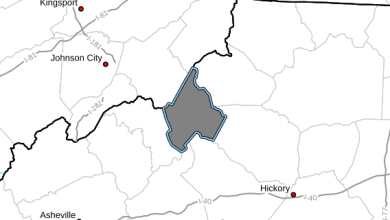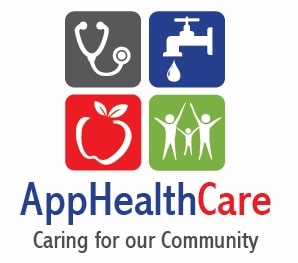Last Updated on September 23, 2018 11:11 am
*Videos and photos at the end of the article* – The ribbon cutting for Appalachian State's largest classroom building to date took place on Friday afternoon.
The Leon Levine Hall of Health Sciences is a 203,000 square foot building and contains 33 classrooms and 27 labs. Five of the six departments in the Beaver College of Health Sciences will be housed in Levine Hall. The Department of Recreation Management and Physical Education will remain in Holmes Convocation Center.
The building was made possible when North Carolina voters approved the Connect NC Bond vote in March 2016. The bond enables the state to finance a variety of capital and infrastructure improvement projects across the 17 University of North Carolina campuses. Levine Hall is the first completed project related to Connect NC and was completed on time and on budget. A $5 million commitment from The Leon Levine Foundation was used for furnishing and outfitting the laboratories and offices.
Departments occupying the building are: Communication Sciences & Disorders, Health and Exercise Science, Nutrition & Health Care Management, Nursing, Social Work
Approximately 150 faculty and about 2,300 students are teaching and learning in the building now. Classes and labs for Nursing students, who have been learning in clinical environments so far this semester, will begin in the building next week. Because of their clinical schedules, Nursing students follow a different schedule from the typical semester schedule.
Key features of the building include:
High-tech classrooms and laboratories designed for collaboration and problem-based learning;
Information commons and gallery
Student leadership and success center
Learning environments are primarily located on the first 3 floors.
Faculty and administrative offices are located on the 4th & 5th floors
The state-of-the-art facility allows for interdisciplinary and cross-disciplinary collaboration and research in a location that facilitates a continued partnership between with the Appalachian Regional Healthcare System.
Classrooms are designed to facilitate Collaborative Learning and Problem-Based Learning (PBL). Along with high-tech classrooms and laboratories, flexibility is built into the design, to allow for lectures, working groups, and collaboration with instructors and students in the classroom, or health care practitioners located in medical or practitioner environments nearby or across the globe.
Appalachian’s nearly 3,500 students in the Beaver College of Health Sciences who can study in a state-of-the-art facility that enhances collaborative efforts across the disciplines and fosters a patient-centered practice model; and citizens of the region — many in rural areas — who will be served by Appalachian’s well-prepared graduates.
Ribbon cutting speakers included:
Dr. Sheri Everts, Chancellor, Appalachian State University
Margaret Spellings, President, UNC System
Tom Lawrence, Executive Director, Levine Foundation
Philip Byers, Member, UNC Board of Governors
Representative Nelson Dollar, Chair, Appropriations Committee, North Carolina
DeJon Milbourne, President, Appalachian Student Government Association
Dr. Darrell Kruger, Provost and Executive Vice Chancellor
Following remarks, speakers cut the ribbon, along with James M. Barnes (Chair, Appalachian State University Board of Trustees) Don and Vicki Beaver, (Dr. Marie Huff (Beaver Health College Dean), and Chuck Mantooth (CEO, Appalachian Regional Healthcare System).
Appalachian's Beaver College of Health Sciences opened in 2010 as the result of a strategic university commitment to significantly enhance the health and quality of life for individuals, families and communities in North Carolina and beyond. In 2015, the college was named for an Appalachian alumnus and pioneer in the health care industry — Donald C. Beaver ’62 ’64 of Conover. The college offers 10 undergraduate degree programs and six graduate degree programs, which are organized into six departments: Communication Sciences and Disorders; Health and Exercise Science; Nursing; Nutrition and Health Care Management; Recreation Management and Physical Education; and Social Work. Learn more at https://healthsciences.appstate.edu.
Videos courtesy of Appalachian State University Communications
Photos: Kenneth Reece






Photos: Appalachian State University Communications























